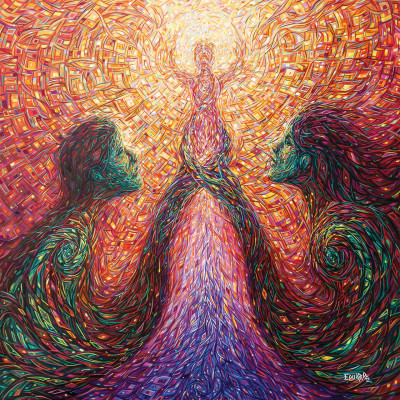Relationships – Why do opposites attract? (Part 1 of 3)
Is it ‘pure chemistry’ that we find someone attractive? Does it come down to the physicality of why opposites attract? Why is it that in so many intimate relationships you see the classic case of two opposite personalities being drawn together? Perhaps it comes down to the psychology of relating.
When we are in the initial ‘fantasy’ bubble of attraction, being in love brings a heightened sense of arousal. There is definitely chemistry at work. With these good feelings there are also innocent beliefs of perfection that surround the blossoming relationship. In this ‘fantasy bond’ that forms, like with a newborn to its parents, there is a seemingly unbreakable attachment. This fantasy bond can also be the very source for the undoing of the newly formed relationship.
Given that fantasies are in fact an illusion, in essence we deny the true nature of this person and replace them with who we would like them to be. When inevitably they do not live up to these expectations, as they are based on our false beliefs of who we think they are, we begin to reject them, and in turn begin to build resentments toward them. These resentments can go ‘underground’, and through their internal suppression become toxic to our being, and may be the basis for some unhealthy behaviour. Alternatively these resentments may be inappropriately expressed. Given these resentments are fundamentally derived from an unfounded need to mould the other person back into the form of our ‘fantasy’, inappropriate expression is likely to elicit a reaction of defence in our partners and manifest relationship conflict.
We usually fall into two traps at this point; either we become avoidant, so as to not experience the discomfort of conflict or tensions. Or we become overly focused on changing the other person, so as to not have to feel our own discomfort that self – reflection may trigger.
Given the tendency for relationships to progress as outlined above, it is not surprising to realise how many relationships are subject to these traps. These relationship traps are often at the core of what is commonly called ‘co-dependency issues’. This is a term to describe a degree of dysfunction that is inherent to the relationship, whereby there exists a dynamic of enmeshment and enabling of certain unhealthy behaviours (e.g. addictions).
Over time, the qualities in a person that we may initially have found attractive may be the very qualities that repel or trigger us. If they are qualities that we find lacking in ourselves it may be that we are challenged by our own developmental inadequacies in these areas. If on the other hand they are qualities that we possess in abundance, perhaps we are seeking to change these aspects in ourselves and our partners trigger our ambivalence to this change.
It may be that opposites attract to bring opportunity for change to occur. Perhaps it is human nature that brings this calling as part of our evolution.
Exercise question: What qualities do we see in our partners that are mirrors to our own insecurities that you wish to change?
Author: David Kalmar
Psychologist

